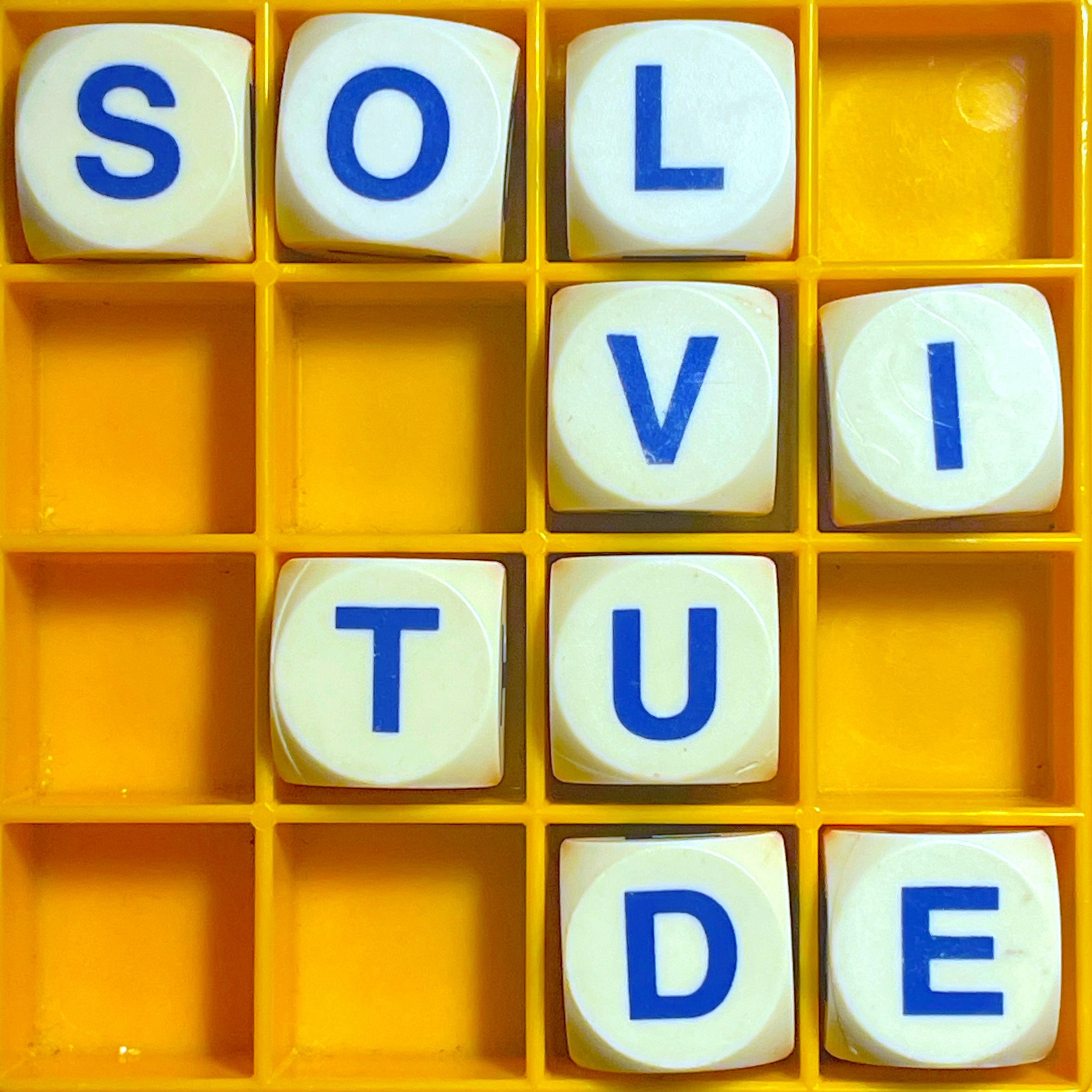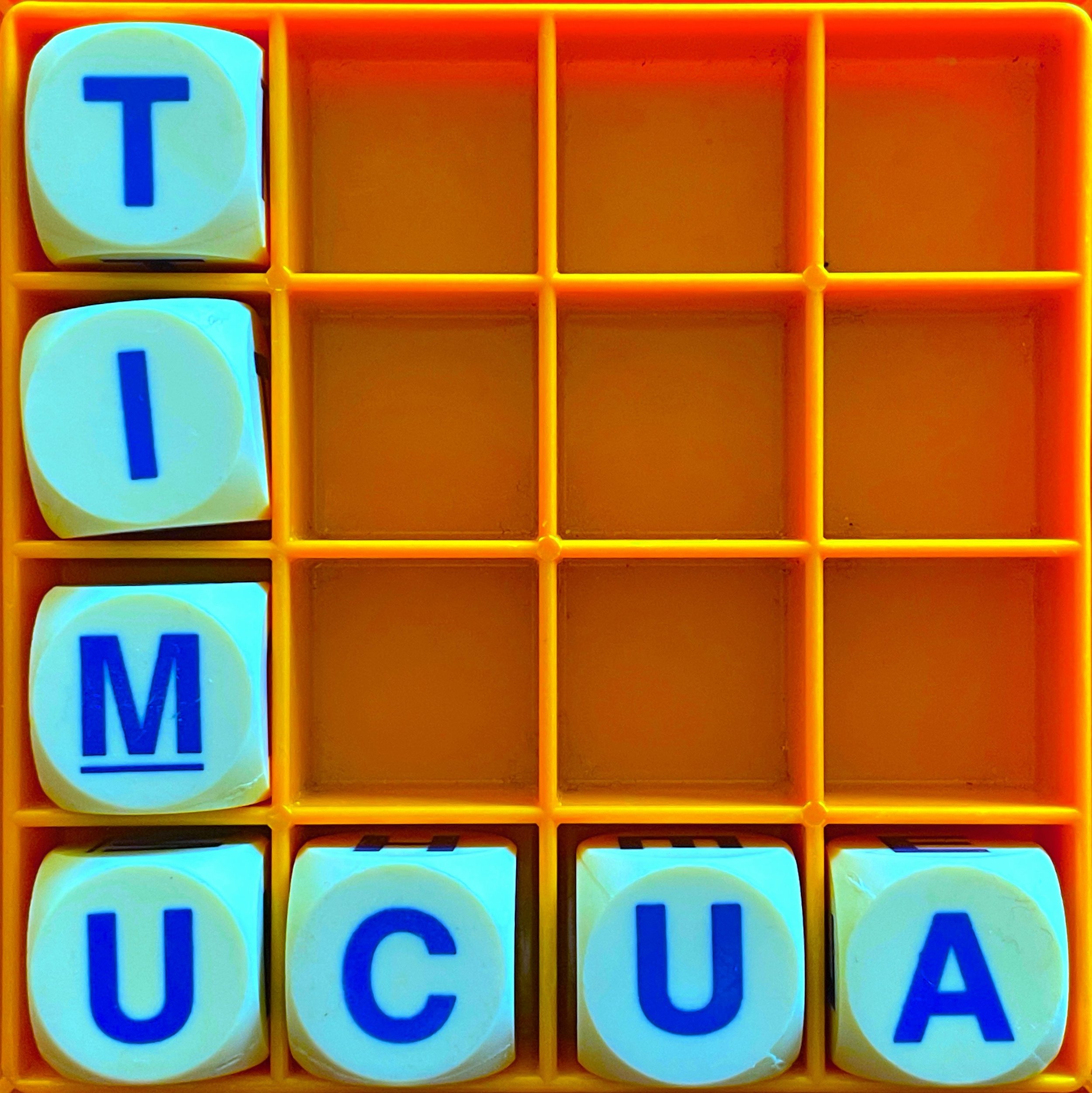There's so much more to say about Singlish after last episode that we're saying some more of it this episode. Poet and academic Gwee Li Sui, author of Spiaking Singlish: A Companion to how Singaporeans Communicate, describes the resistance he received in Singapore when he published Singlish translations of literary works - and why they are important and celebratory for Singlish. And Stacey Mei Yan Fong, baker and author of 50 Pies, 50 States, explains how the language that used to be embarrassing for her is now a huge comfort.
Read moreAllusionist 199: 199 ideas that I hadn't made into podcasts yet
Next episode is the 200th, therefore this is the 199th. I raid the 66-page documents of ideas for episodes, that I have been keeping for nearly a decade, and present to you 199 ideas that I have not yet made into podcasts (except for this one).
Read moreAllusionist 195. Word Play 5: 100 Pages of Solvitude
Cain's Jawbone, a murder mystery cryptic puzzle novella in the form of 100 pages presented in the wrong order, has many millions of possible solutions but only one that is correct. 86 years after it was published, writer, comedian and crossword constructor John Finnemore solved it. And then, craving another 100-page cryptic puzzle murder story, he wrote his own.
Read moreAllusionist 183. Timucua
When Spanish missionaries arrived in what is now called Florida, there were 100,000-200,000 Timucua people in the region. Just two centuries later, there were fewer than 100. Soon, with all the people who spoke it dead, the Timucua language died out, too, preserved only in a few Spanish-Timucua religious texts.
In the 21st century, linguistic anthropologist Aaron Broadwell and historian Alejandra Dubcovsky have been decoding and translating these texts to understand the Timucua language and the people who were writing it down.
Read moreAllusionist 180. Project ENABLE
Sterling Martin was in grad school, studying C. elegans worms, when COVID19 hit and suddenly he found himself in lexicography, as part of a team creating a Navajo-English dictionary of science terms.
Read moreAllusionist 166. Fiona part 2
“I don't think that anyone should come away from this conversation not wanting to use the name Fiona. I think this is a beautiful and rich history. It might not be quite the history that you imagined, but I think it's a beautiful history," says writer and performer Harry Josie Giles. She and PhD researcher Moll Heaton-Callaway investigate this complicated name with fascinating history, in this second of a pair of episodes about the name Fiona.
Read moreAllusionist 164. Emergency
When is a war not a war? When the British Empire called it an 'emergency' so they didn't have to abide by wartime rules or lose their insurance payouts. Artist and journalist Sim Chi Yin reflects on the Malayan Emergency, a 12-year conflict that doesn't get talked about much now by either side; and historian Charlotte Lydia Riley considers the various reasons why the British opted for the term 'emergency', and why they don't celebrate even when they supposedly won them.
Read moreAllusionist 146. Survival: Today, Tomorrow part 1
The Icelandic language has remained so stable over the centuries, speakers can read manuscripts from 900 years ago without too much trouble. And when they need a new word for more recent concepts, there are committees to coin one, so that the modern Icelandic lexicon includes such things as the internet, helicopters and mansplaining. Defending the language from the encroachment of English, however, is rather more challenging.
Read moreAllusionist 128. Bonus 2020
To round off the year, here are some choice cuts from the Allusionist vault of interesting things that guests said that there wasn’t room for in the original episodes. Brace yourself for a vivid name for dust bunnies, the scary side of glamour, another reason to be grateful for bears, and Schrödinger’s Fart.
Read moreAllusionist 119. Blood Is Not Water
The Yiddish word for ‘black’ is, in certain uses, a slur. So Anthony Mordechai Tzvi Russell, Arun Viswanath and Jonah Boyarin teamed up to translate Black Lives Matter without it.
Read more









